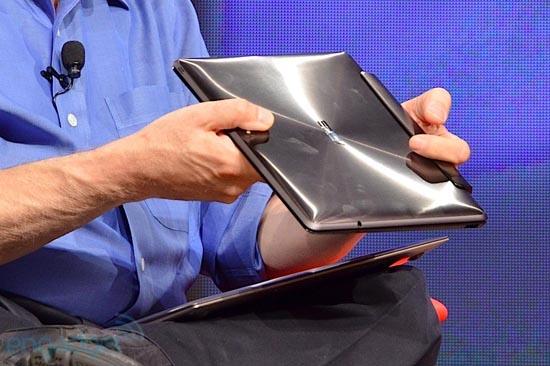
Apple's popular iPad has had a stranglehold on the tablet market since in originally launched in April of last year. Back in June of 2010, it was predicted that Apple would sell 16.5 million iPads by the end of 2012, collectively. We're now approaching the closing months of 2011 and Apple sold 11.12 million iPads in the last quarter alone. It was also predicted by Piper Jaffray analyst Gene Munster in October last year that Android tablets would outsell the infamous iPad. If things keeps going at the current rate, that will never happen.
At AsiaD this month, Andy Rubin revealed that Android is powering six million tablets worldwide – a respectable amount, but nothing in comparison to the 25 million Apple is currently claiming rights to.
Some feel that this will change with the Kindle fire, which Amazon announced last month and will launch in just two short weeks. Truth be told, it will ... technically. The Kindle Fire is a 7-inch device slated to deliver a slew of Amazon services to its users around the world. Amazon decided to use Android to power their tablet, but by looking at it you would never know it was Android. At a remarkably low price of $199, I couldn't resist the urge to pre-order one. Nor could a lot of other people as Amazon has had to up production by "millions" to meet demand.
But the Kindle Fire isn't truly an Android tablet, and most people will never see it as an Android tablet – at least that's not what Amazon wants. They want us to see it as an Amazon tablet that connects users to Amazon services.
The thing is, more and more people are looking to tablets for productivity and work than ever before, yours truly included. The Kindle Fire will certainly be able to perform some heavier tasks than your phone would, with the aid of some apps from Amazon's Appstore. But at 7-inches and with Amazon gearing it more towards a consumption device, it doesn't exactly come off as work-esque.
There is, however, one Android manufacturer who has been focusing on this aspect of tablets since day one: ASUS. The original Transformer was (and still is) one of the most popular Android tablets to date. Both of their current tablets have a tightly integrated keyboard option and are geared toward both consumers who want to get work done and play. Not only have they managed to offer one of the nicest tablets to date, they have also done it at a respectable starting price of $400, plus $160 (or less now) if you want the additional keyboard dock, which is a must-have accessory.
Word of the next generation ASUS tablet, the Transformer Prime, has been picking up as of late. And Johnny Shih, chairman of ASUS, offered a quick peek at the Prime at the AsiaD conference earlier this month. It is thinner and made of better materials (brushed aluminum versus plastic) than its predecessor, ships with Ice Cream Sandwich and powered by a quad-core NVIDIA Kal El processor. But the best part of all is that they are trying to blur the lines between their tablet and their newest PC line, Zenbooks. The Transformer Prime looks almost identical to the UX21 and UX31 Zenbook models, just slightly smaller with different ports and a camera around back.
I've been eyeing ultrabooks since the term was first coined. As I am always on the move, I would like something smaller, faster and lighter. Ultrabooks seemed to offer that ... for a premium price. Priced more appropriately, tablets are slowly but surely becoming more PC-like with every software and hardware update. Android can't currently perform on the same level as a PC, but given a few more updates – like a full version Chrome browser for Android – it may.
What they're currently doing has definitely started a buzz, and no other Android partner seems to be thinking outside the box or targeting different niche markets like ASUS. If ASUS continues to churn out these topnotch Android tablets and Google keeps pumping out major update after major update, these two may finally strike gold. That is, if they can keep their prices at a respectable level.
I bought a Transformer on launch date and later got rid of it (only because my mother was nagging and I'm the world's best son), and I regret ever doing so. I will be keeping my eyes on ASUS and everything they do over the next couple years. And rest assured, I will positively be picking up a Transformer Prime when it becomes available early next year.
What say you, ladies and gents? Are you interested in what ASUS is making of the tablet market? Do they have what it takes to help Android tackle iOS in the tablet space (sometime in the distant future)? Will you be picking up a Transformer Prime next year?